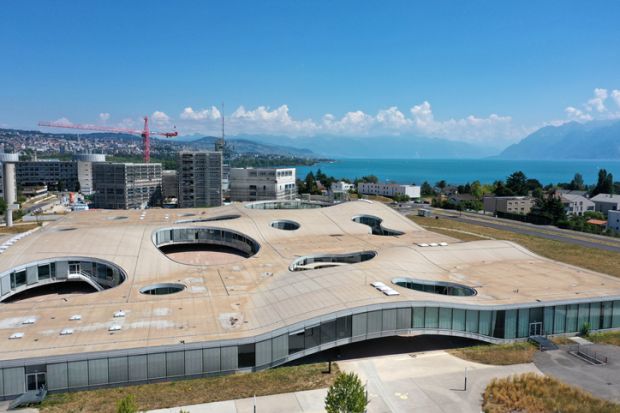A leading Swiss university has proposed measures to restrict places for overseas undergraduate students, saying its expanding student body is “putting a strain on the quality of the education [it] can provide”.
École Polytechnique Fédérale de Lausanne (EPFL) has launched a consultation on a plan to restrict the number of first-year bachelor’s students admitted to 3,000 a year. If the measure is approved by the ETH Board, which governs the university, it will come into place in 2025 for four years, with the potential for extension “if necessary”.
The cap will only affect international students, EPFL said in a statement on 22 January, because the university is mandated by law to accept all those who apply with a Swiss high-school diploma, while students repeating their first years will also face no restrictions.
“The remaining spots would be attributed to foreign applicants, ranked according to their final high-school grades, until the 3,000 limit is reached,” the university said. “We estimate the measure would reduce bachelor’s admissions by around 20 per cent. We’ll review the measure in light of the changes in our student body at the end of each four-year period.
“The reason is simple: the number of EPFL students with a Swiss high-school diploma has grown 28 per cent since 2010, while the number of EPFL students holding non-Swiss diplomas has shot up 233 per cent. Of the students in the latter category, over 90 per cent come from France,” the statement continued.
Describing EPFL as “a victim of its own success”, the university said its bachelor’s and master’s student body had more than doubled since 2010, rising from 5,283 to 10,894 in 2023. “This is creating a number of challenges when it comes to maintaining our high educational standards: our lecture halls are saturated, the student-faculty ratio is on the rise and the workload for our support services has expanded considerably,” it said.
The large student population has also required the coordination of class schedules with the nearby University of Lausanne to prevent overcrowding on public transport, while student housing is under significant strain, the university noted.
Pierre Dillenbourg, EPFL’s associate vice-president for education, said: “With this temporary measure, we want to return to the student body size we had in 2020 and make sure we can keep delivering excellence in education, under the best possible learning conditions for our students.”
Register to continue
Why register?
- Registration is free and only takes a moment
- Once registered, you can read 3 articles a month
- Sign up for our newsletter
Subscribe
Or subscribe for unlimited access to:
- Unlimited access to news, views, insights & reviews
- Digital editions
- Digital access to THE’s university and college rankings analysis
Already registered or a current subscriber? Login








